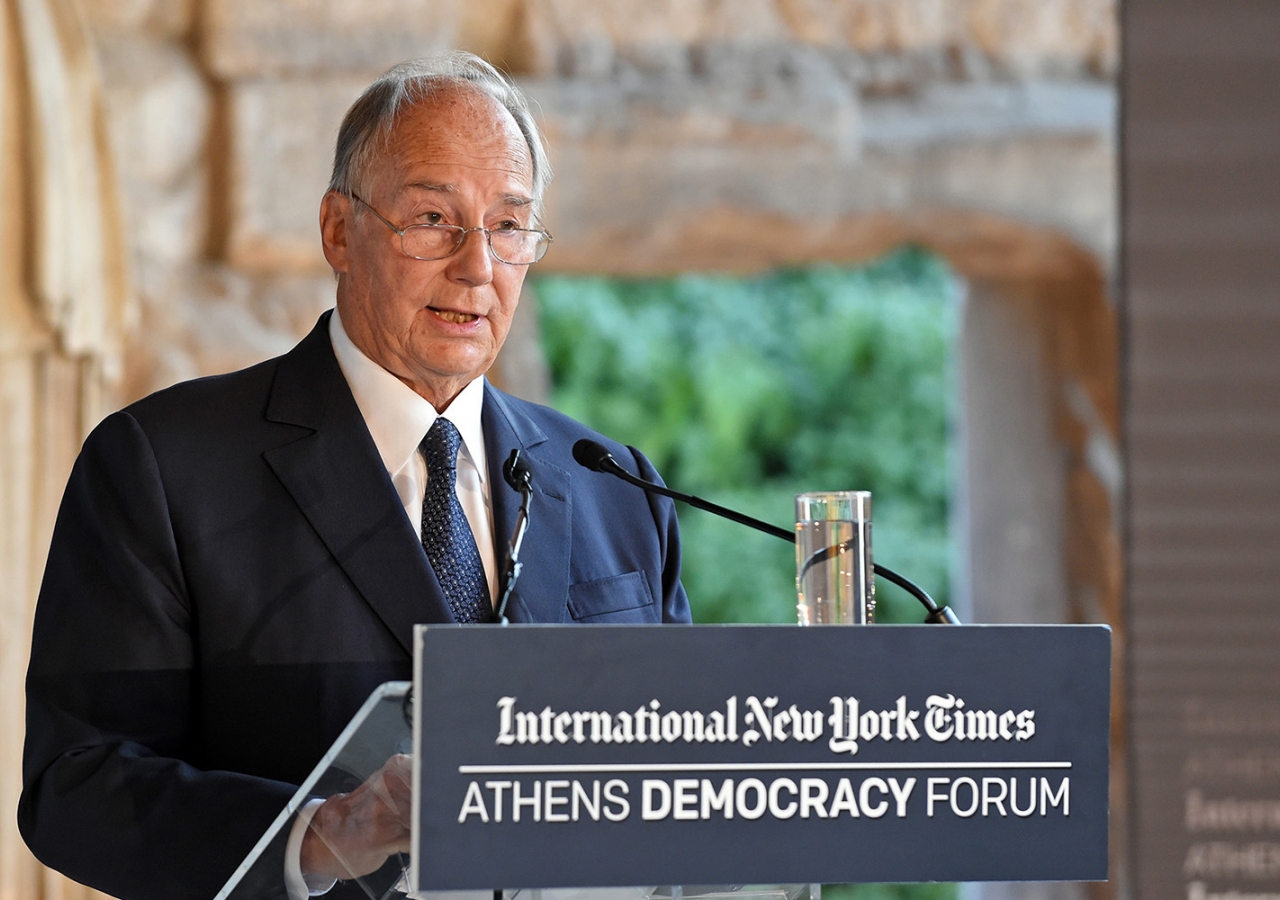“I believe that the progress of democracy in our world is fundamentally linked to improving the quality of human life,” said Mawlana Hazar Imam in a keynote speech delivered at the Athens Democracy Forum.
“The promise of democracy is that the people themselves best know how to achieve such progress,” said Mawlana Hazar Imam. “But if that promise is disappointed, then democracy is endangered.”
However, he said, an improved understanding of constitutions, an independent and pluralistic media, strengthened civil society, and a democratic ethic committed to genuine dialog are elements that may yet sustain it.
Hosted by the International New York Times and the United Nations Democracy Fund, the third annual Athens Democracy Forum brought together diplomats, scholars, executives, politicians, thought-leaders, and journalists to discuss the state of liberal democracies and the major challenges they face in the world today.
Mawlana Hazar Imam pointed out that constitutions are often poorly suited to the needs of pluralistic societies, and constitutional change can be elusive. Turning to simplistic populism, in which policy sways to the whims of public opinion polls and the “number of hits on an internet blog, “ said Hazar Imam, “can create voids of governance, which can be exploited to dangerous ends.”
And new media technologies cannot be relied upon to draw people together in and of themselves, said Hazar Imam. History shows that “quantitative advances in communication technology have not necessarily produced qualitative progress in mutual understanding.”
A strong and credible independent media, whose voices reflect the diversity of society itself, is essential, he noted, and goes hand-in-hand with a healthy civil society, which “draws on the ancient, classical link between democracy and the publicly-committed citizen.”
Seeking “consensus through genuine consent,” civil society helps to nurture dialogue around a shared commitment to ameliorate the quality of human life — a “democratic ethic,” which Hazar Imam said “implies a pluralistic readiness to welcome diversity and to see our differences not as difficult burdens but as potential blessings.”
Social order rests on a balance that recognises the interests of all parties in society, who must seek out common ground.
“The global aspiration for a better quality of life,” said Mawlana Hazar Imam, must be “built upon opportunities that will provide genuine hope for the future.”
“Democracy can only survive if it demonstrates – across the years and across the planet – that it is the best way to achieve that goal.”








